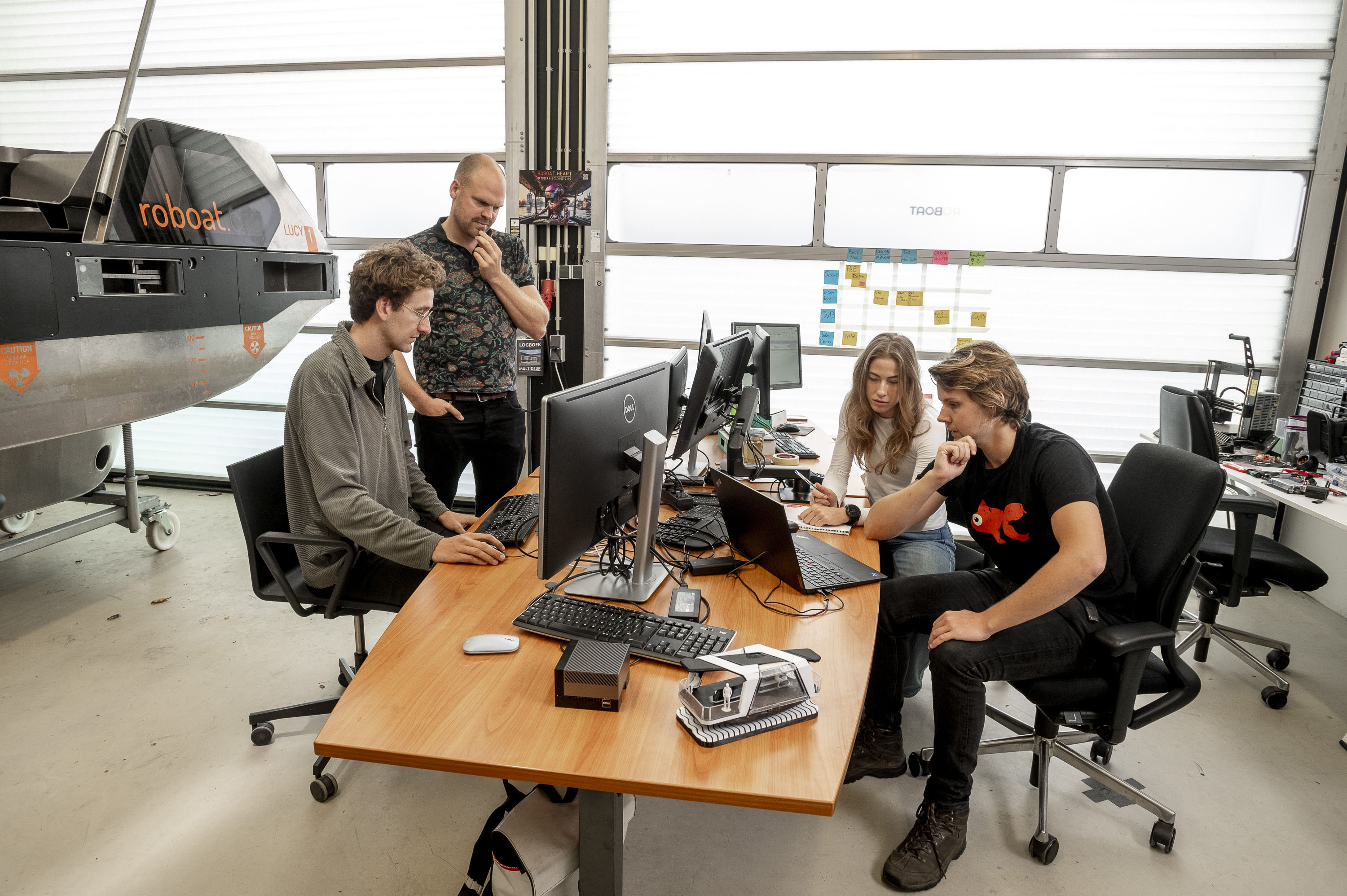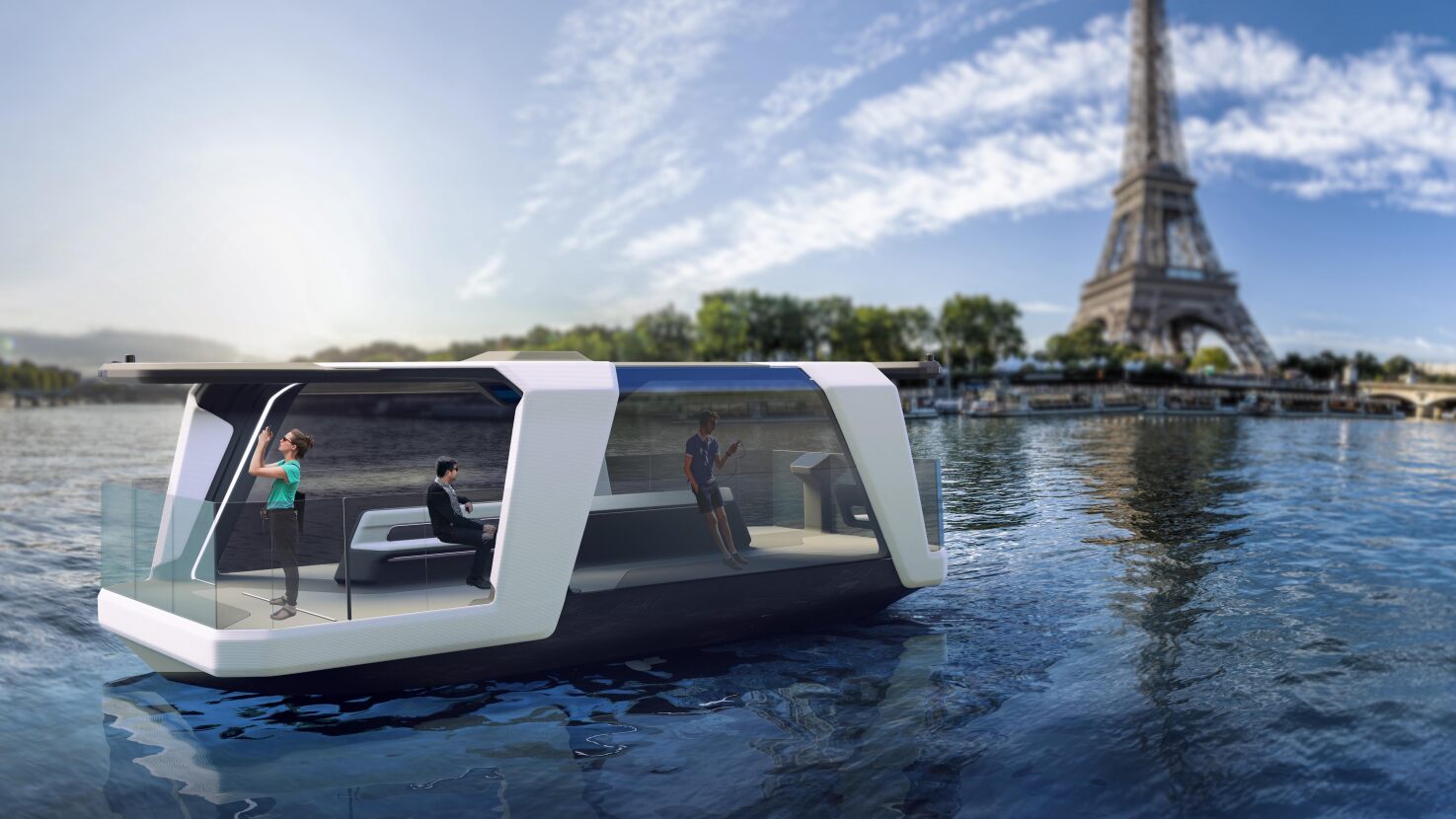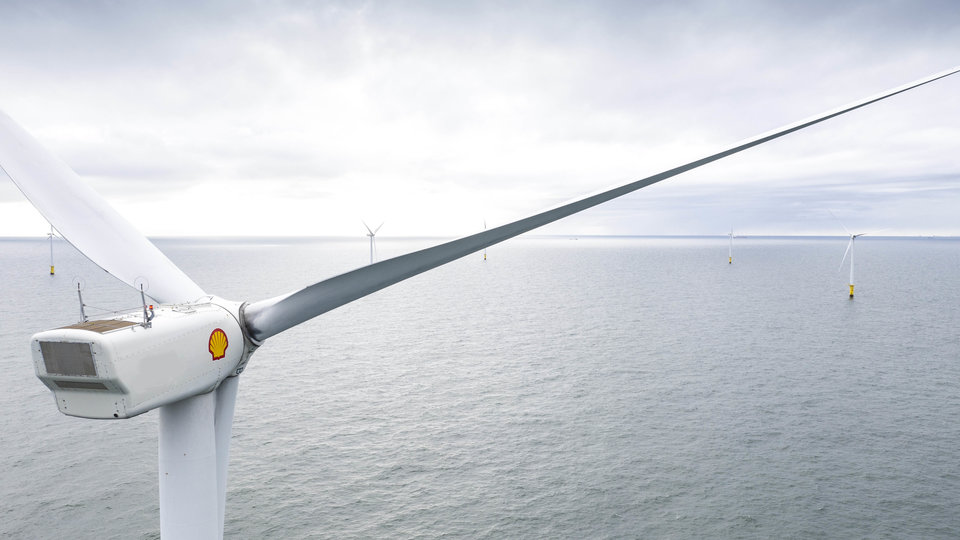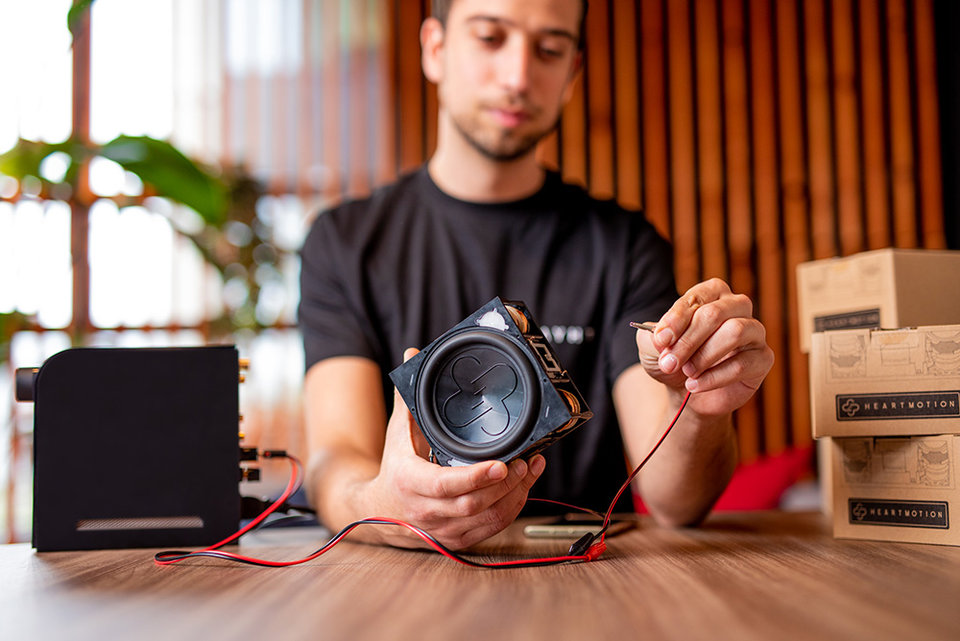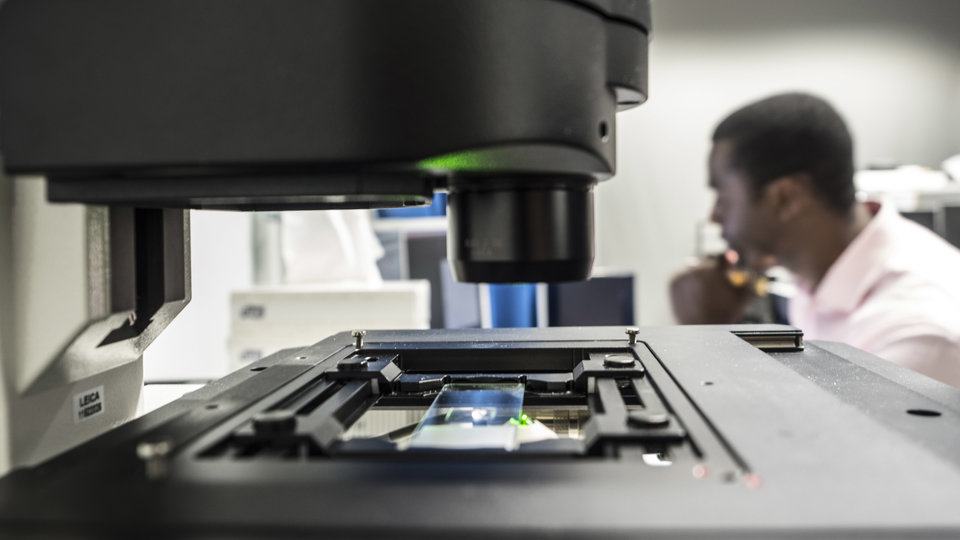Roboat is on course for the future
Start-up company Roboat develops technology that enables vessels to sail without a skipper at the helm.
By Bennie Mols • October 25, 2023
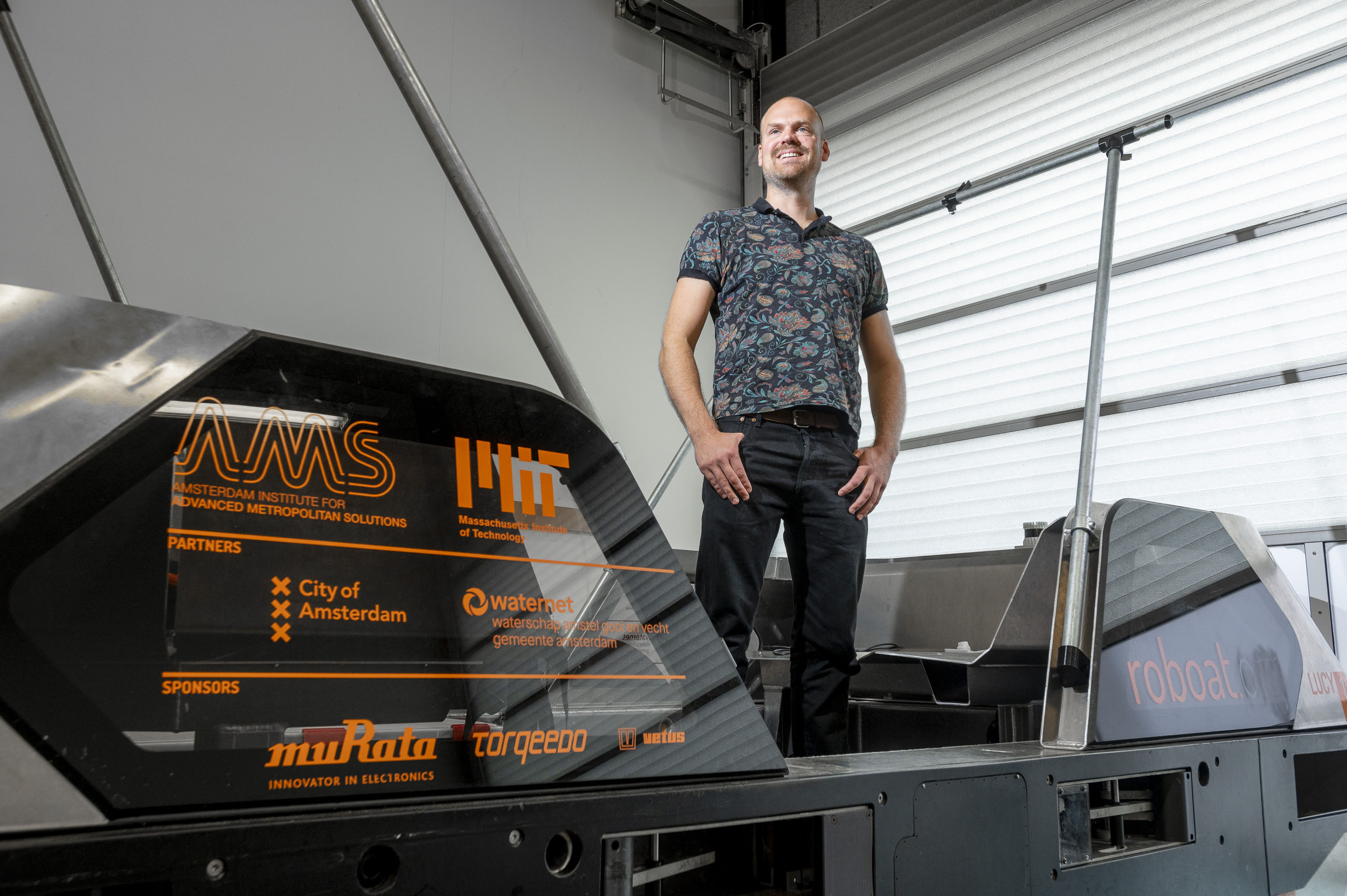
Ynse Deinema © Roboat
The warehouse in Amsterdam’s maritime quarter overlooks the Maritime Museum and the replica of an 18th-century Dutch East India sailing ship moored alongside it. In this warehouse surrounded by maritime history, work on the future of inland shipping is hard under way. It’s a future in which shipping vessels will be smart enough to sail without the intervention of a human skipper. Filling up the space in the warehouse and providing a glimpse of what’s to come are two silver-coloured autonomous boats - a water taxi and a refuse container.
The warehouse is the home of Roboat, a start-up company established in early 2023. The company grew from the Roboat research project, run from 2015 to 2022 by the Massachusetts Institute of Technology (MIT) and the Amsterdam Institute for Advanced Metropolitan Solutions (AMS Institute), of which TU Delft was a co-founder. Ynse Deinema was the project manager of the Roboat scientific project and is currently the CEO of the eponymous start-up.
Ynse, what is your personal connection with boats?
‘Boats have been a hobby of mine since I was a child. Not only do I like sailing in them, but I love working on them, fixing them and tinkering with the technology behind them. It’s immensely interesting to seek out the limits of what you can do with a boat. How much technology can you inject into a boat without it losing societal relevance? While it is utter nonsense to claim that all shipping vessels will be autonomous within 50 years, there certainly are a great many applications in which autonomous boats definitely provide added value. I enjoy contributing to this.’
What solutions do you want Roboat to offer?
‘Worldwide, there are terrific opportunities involving aquatic transport in cities and ports, such as for transporting people or collecting waste. Conventional shipping is currently reaching the limits of what is possible. Urban boats are relatively small, so operating costs are high. At the same time, there is an enormous shortage of skippers everywhere. We want to make commercial transport on inland waterways more efficient, safer and less expensive. We’re doing this by developing autonomy systems that can be installed on any type of shipping vessel. Customers have the choice of installing the system on an existing vessel or integrating it in the design and build of a new vessel.’
What does your autonomy system consist of?
‘It consists of three main components: perception, navigation and control. For perception, we use a LiDAR, a kind of laser scanner, in combination with various cameras. Together, they detect all obstacles in the vicinity, ranging from other vessels to infrastructure and swimmers. This kind of observation is super accurate – a step further than the customary standard in the industry. The second component is the navigation: calculating a path from A to B without knocking into anything. This part consists of extremely accurate GPS combined with the map of the local environment that the system itself makes while sailing. The third component, the controls, drives the propellers of the Roboat.’
What is your relationship with TU Delft?
‘We got help from Delft Enterprises during our initial phase as a start-up. In addition, TU Delft is a breeding ground for top talent in the areas of robotics, visual recognition, systems and control, and product design.’
What do you currently consider to be your showpieces?
‘We provide Amsterdam's public transport company GVB with a Roboat system for the ferry service across the IJ river. This system keeps an eye on all objects in the water and pass on this information to the skipper to make the crossing safer. For example, it can sometimes be difficult to see a small boat on the water but our system would pick up on it and alert the skipper.
In addition to this, we will be supplying an autonomous electric boat to be used at the 2024 Olympic Games in Paris. It will ferry passengers across the Seine from the athletes’ village, situated on a peninsula, to the opposite bank and back. This boat measures four by nine metres and carries 35 passengers. We are supplying the autonomy system, the ship-building company Holland Shipyards will be 3D-printing the vessel, and a local operator in Paris will run the service. While it's fantastic that Paris is building experience with this, it’s a pity that Amsterdam is not doing so yet.’
